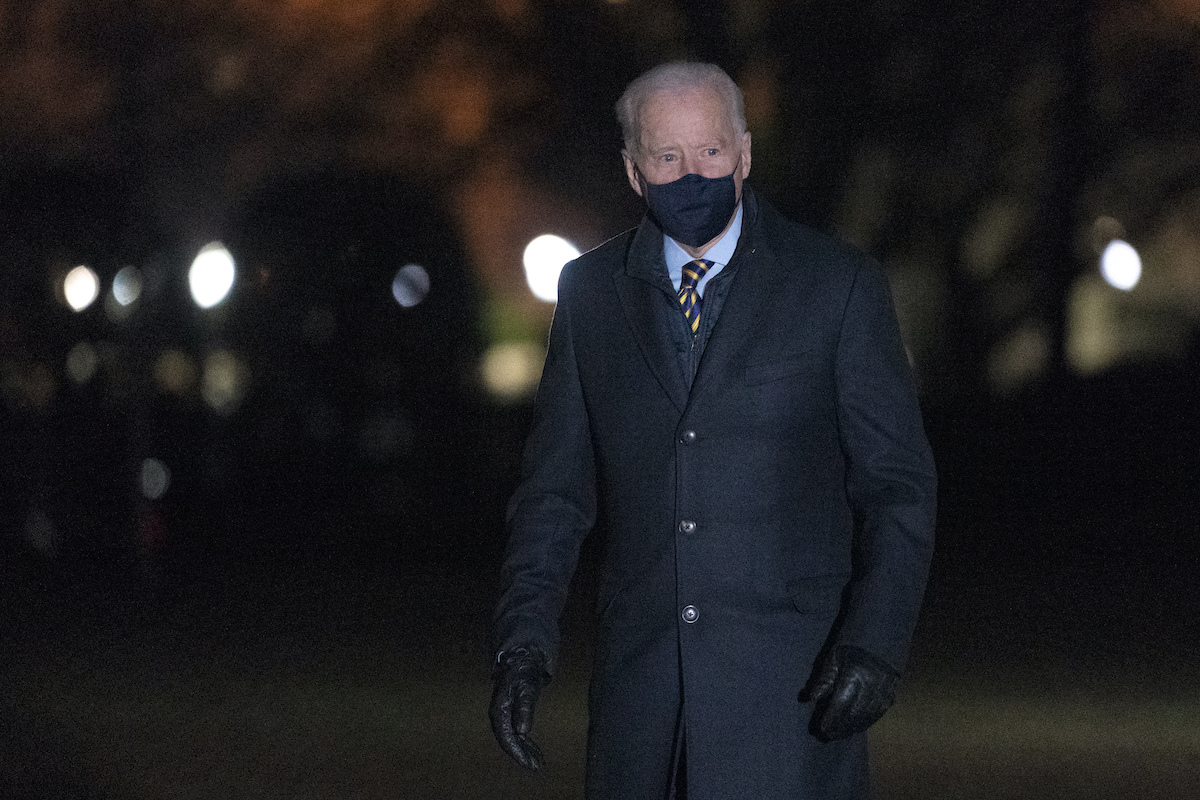

President Joe Biden walks on the South Lawn of the White House after stepping off Marine One, Wednesday, February 17, 2021, in Washington. (AP Photo/Patrick Semansky)
By ALEXANDRA JAFFE, Associated Press
WASHINGTON (AP) — President Joe Biden’s administration is joining Democrats on Capitol Hill to unveil a major immigration overhaul that would offer an eight-year pathway to citizenship to the estimated 11 million people living in the U.S. without legal status.
The legislation, to be released in detail Thursday morning, will reflect the broad priorities for immigration reform that Biden laid out on his first day in office, including an increase in visas, funding to process asylum applications and new technology at the southern border.
But while the plan offers one of the fastest pathways to citizenship of any proposed measure in recent years, it does so without offering any enhanced border security, which past immigration negotiations have used as a way to win Republican votes. Without enhanced security, it faces tough odds in a closely divided Congress.
The bill would immediately provide green cards to farmworkers, those with temporary protected status and young people who arrived in the U.S. illegally as children. For others living in the U.S. as of January 1, 2021, the plan establishes a five-year path to temporary legal status, if they pass background checks, pay taxes and fulfill other basic requirements. Then, after three years, they can pursue citizenship.
The plan would raise the current per-country caps for family and employment-based immigrant visas. It would eliminate the penalty barring those immigrants who live in the U.S. without authorization and who then leave the country from returning for three to 10 years. It also would provide resources for more judges, support staff and technology to address the backlog in processing asylum seekers.
The US Citizenship Act of 2021 Bill being introduced in the House today is essentially the Fact Sheet that @POTUS and @WhiteHouse shared on President Biden's first day in office.https://t.co/AK2E2vuWKh
— Julio Ricardo Varela (@julito77) February 18, 2021
The bill would expand transnational anti-drug task forces in Central America and enhances technology at the border. And it would try to reduce the burden at the border by setting up refugee processing in Central America, to try to prevent some of the immigrant caravans that have overwhelmed border security in recent years.
The plan includes $4 billion spread over four years to try to boost economic development and tackle corruption in Latin American countries, to try to address some of the root causes of migration to the U.S.
A dozen Democratic lawmakers, including lead sponsors California Rep. Linda Sanchez and New Jersey Sen. Bob Menendez, are set to unveil the full text of the bill.
Comprehensive immigration reform has struggled to gain traction in Congress for decades.
Menendez was part of the bipartisan Gang of Eight senators who negotiated a 2013 immigration reform bill that ultimately collapsed. Prior to that, a bill backed by President George W. Bush failed in Congress as well, after multiple attempts at compromise.
While Biden is pushing a comprehensive bill, he suggested earlier this week he may be open to a more piecemeal approach. During a CNN town hall Tuesday night, Biden said that while a pathway to citizenship would be essential in any immigration bill, “there’s things I would deal by itself.” That could leave the door open to standalone bills focused on providing a pathway to citizenship for various populations.
Still, publicly the White House is emphasizing that its goal is a comprehensive plan.
“The president feels that all of these requirements that are in the bill —these components of the bill— are what makes it comprehensive,” White House press secretary Jen Psaki said this week. “They all need to be addressed. That’s why he proposed them together.”



[…] the day that the U.S. Citizenship Act of 2021 is getting formally introduced to the House of Representatives, Latino Rebels Radio host Julio Ricardo Varela welcomes POLITICO […]